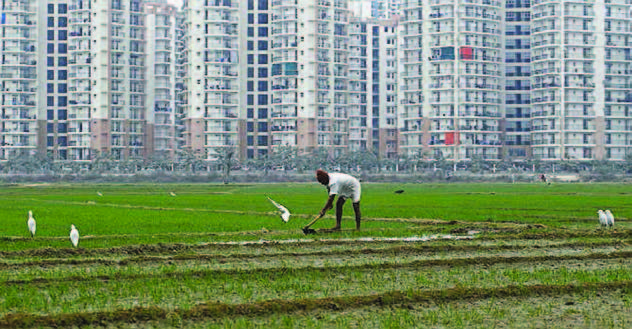NEW DELHI (TIP): The government is working to get the contentious land acquisition bill passed in Lok Sabha next week, but is increasingly wary that defiant opponents and procedural road blocks may come in the way of its objective to turn it into full-scale law.
On a day when its representatives held what sources called successful talks with allies, parliamentary affairs minister M Venkaiah Naidu asserted that “there is no question of going back” on any of the ordinances. The government’s resolve came off clearly also through finance minister Arun Jaitley‘s spirited rebuttal of the criticism that the land acquisition legislation was pro-corporate and anti-farmer.
Besides allies, ministers were deputed to talk to other parties — AIADMK, DMK, BSP, TRS and YSR Congress — who are not deemed to be staunchly hostile to the legislation and can be expected, in government’s reckoning, to be flexible during the head count.
Besides the land acquisition bill, the government also proposes to bring in bills to replace ordinances on coal block allocation, mines and minerals, insurance, citizenship and for legalizing e-rickshaws.
Renewed efforts for gathering numbers have been necessitated because of the rule that a joint sitting for resolving a legislative stalemate, a situation where a bill passed by one House gets stuck in the other, can be convened only six months after it has been approved by one House and sent to the other. In fact, 180 days can in reality stretch close to one year or even more because only working days of Parliament are counted for the purpose.
The rule deepens the bind government finds itself in. While opponents have dug in their heels demanding radical recast of the legislation, BJP leadership is convinced that giving in on the core issue of exempting acquisitions from the requirement of consent of 70% of land holders and social impact assessment will defeat the very purpose of the legislation, besides rendering the government vulnerable to more arm-twisting.
The predicament has prompted the outreach to those who are seen as “issue-agnostics”, and can help the government get around the number handicap in Rajya Sabha. Sources said the government is ready to make concessions provided they don’t come in the way of the motive — speedy acquisition of land in exchange for fair and adequate compensation.
A breakthrough has so far eluded government managers, putting a question mark on the fate of the ordinance on land acquisition which will lapse on April 5 if not passed by the two Houses. While it can be re-promulgated, the government will have to wait till May 8 when the budget session ends to do so.
The Supreme Court had ruled that measures taken on the strength of the ordinances will not lose legal validity even after the legislation lapses, but that may not assure investors looking for land to set up projects and may not give government political courage to start acquisitions.
